Every couple ends up having some arguments, but it’s how you resolve conflict that determines if your relationship really has legs. After all, throwing a fit or a tantrum and having a hard conversation will have very different outcomes.
A woman shared her experience with finally dumping a boyfriend who thought four days of “silent treatment” was a reasonable “punishment” for disagreeing with him. We reached out to the person who shared the post via private message and will update the article when she gets back to us.
Every relationship will go through a rough patch here and there

Image credits: Getty Images (not the actual photo)
But one woman decided that enough was enough after her BF gave her the silent treatment



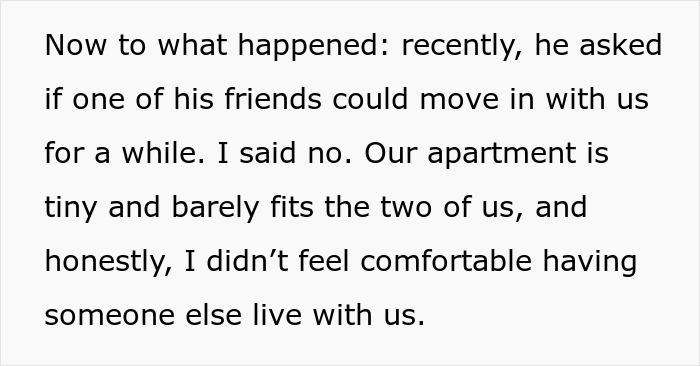

Image credits: 胡 卓亨 (not the actual photo)
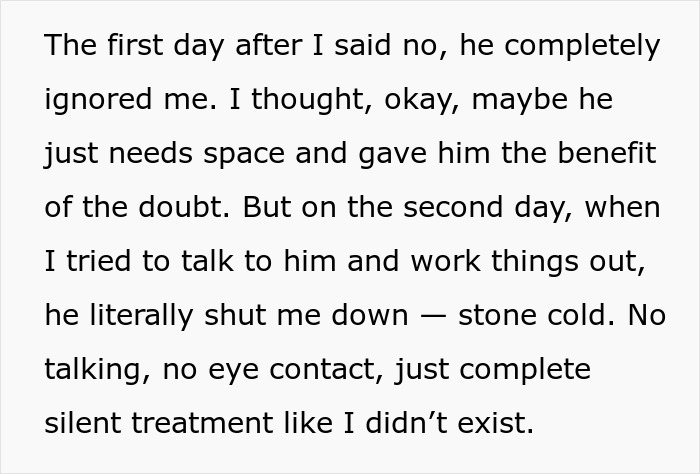
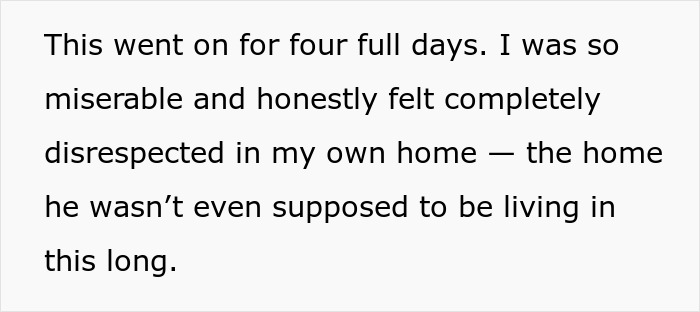
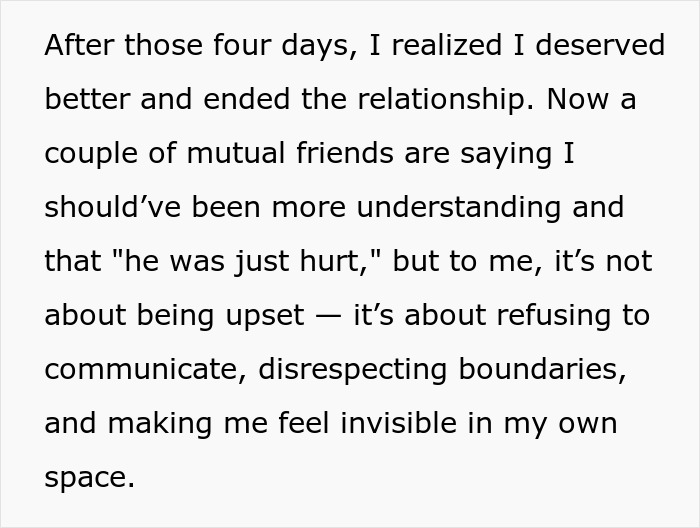
Image source: menacingly_wild
Ignoring your partner for days is really not at all healthy
The silent treatment, refusing to speak or acknowledge your partner, might feel like a powerful way to express hurt or gain control, but it’s neither mature nor reasonable in a healthy relationship. At its core, the tactic relies on emotional manipulation: by withholding communication, one partner forces the other into guesswork, apology, or guilt in order to restore harmony. Rather than resolving the underlying issue, it creates a power imbalance where silence becomes a weapon and emotional intimacy erodes.
It’s more common in child – parent relationships, although some adults keep using it when they grow up because it’s “familiar” and, in their view, effective. Clinical psychologists believe that in many cases, it’s a form of emotional abuse, as the “silent” person is basically shutting down the discussion. This “teaches” their partner to simply not bring up concerns because it risks more silence. However, it also doesn’t actually resolve anything, it’s just punishment.
Healthy relationships depend on open, honest dialogue. When you shut down and stop communicating, you remove any chance of understanding each other’s perspectives or finding a solution. Problems fester in the dark. Small misunderstandings can balloon into resentment because neither person knows what the other is thinking or feeling. Without the give-and-take of conversation, there’s no way to clear the air, clarify intentions, or express needs.
The silent treatment also damages trust. Partners need to feel safe sharing their thoughts and emotions without fear of being met with a wall of silence. When one person routinely turns off communication, the other learns that vulnerability brings rejection, not support. Over time, this breeds insecurity: Will it be safe to voice my concerns, or will I simply be punished with more silence?

Image credits: RDNE Stock project (not the actual photo)
Couples need to resolve their issues, not just avoid talking
Beyond its impact on the couple dynamic, the silent treatment can take a toll on individual well-being. The person on the receiving end may experience anxiety, self-doubt, or even depression as they struggle to bridge a communication gap that’s entirely one-sided. Meanwhile, the person giving the silent treatment often experiences stress and guilt, because they’re expending emotional energy on avoidance rather than finding constructive ways to express themselves.
At the same time, the silent treatment is also a form of attention seeking behavior, as it forces the other partner to engage. The signal is clear, come apologize or offer to bargain, or the silent treatment will continue. This is manipulative and not actually healthy in any way, since it’s psychologically exhausting for both parties. All this “energy” is spent navigating the silence instead of actually dealing with the issue. For example, in this story, the man doesn’t seem to have understood why his GF would refuse and wants to punish her for it. There is no negotiation, he is simply frustrated and takes it out on her.
Instead of resorting to silence, mature conflict resolution involves taking responsibility for your feelings and choosing a respectful way to express them. This might mean pausing a heated conversation until both partners have cooled down, but it doesn’t mean shutting off entirely. Phrases like “I’m feeling hurt and need a few minutes before we talk” preserve the lines of communication and signal that resolution, not punishment, is your goal.
Relationships thrive on connection, empathy, and mutual respect. The silent treatment severs those bonds, replacing dialogue with drama and resolution with resentment. When couples commit to speaking honestly, even when it’s uncomfortable, they build a foundation of trust that can weather conflict rather than collapse under the weight of unspoken grievances. However, it can also be a signal that this person isn’t mature enough to be a long term prospect.

Image credits: Timur Weber (not the actual photo)
Many readers thought she made the right choice






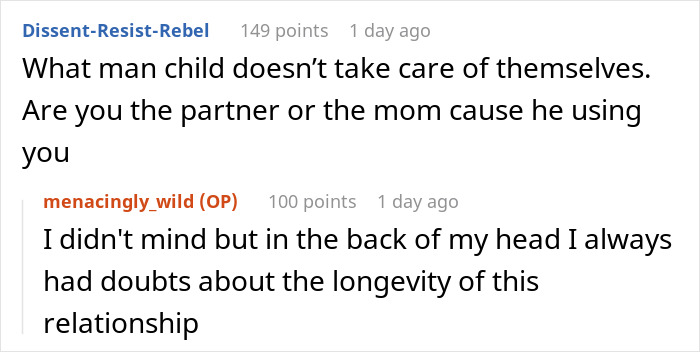





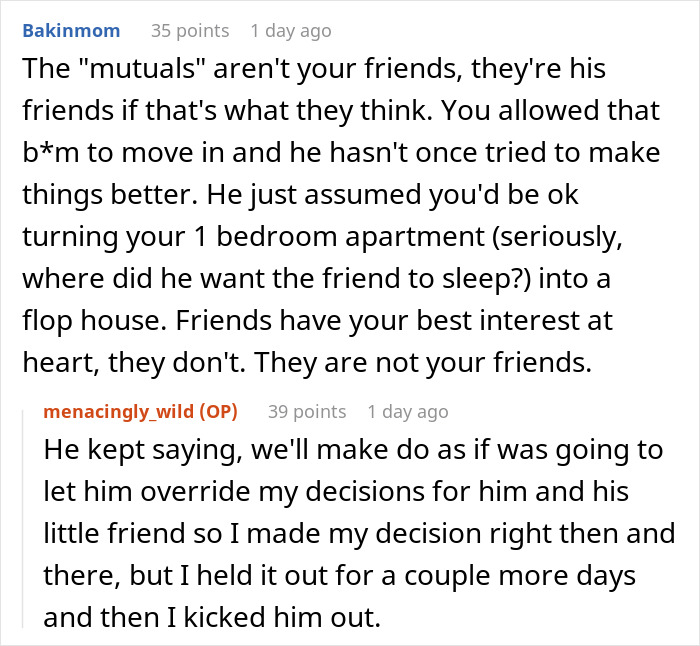


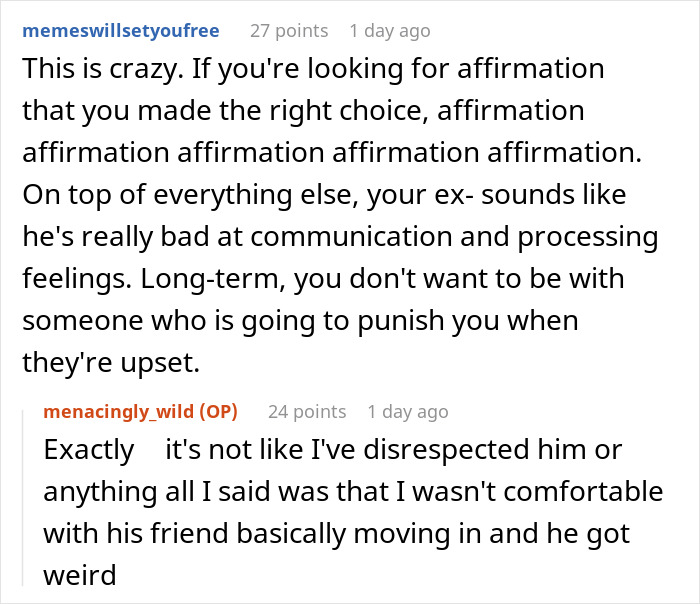




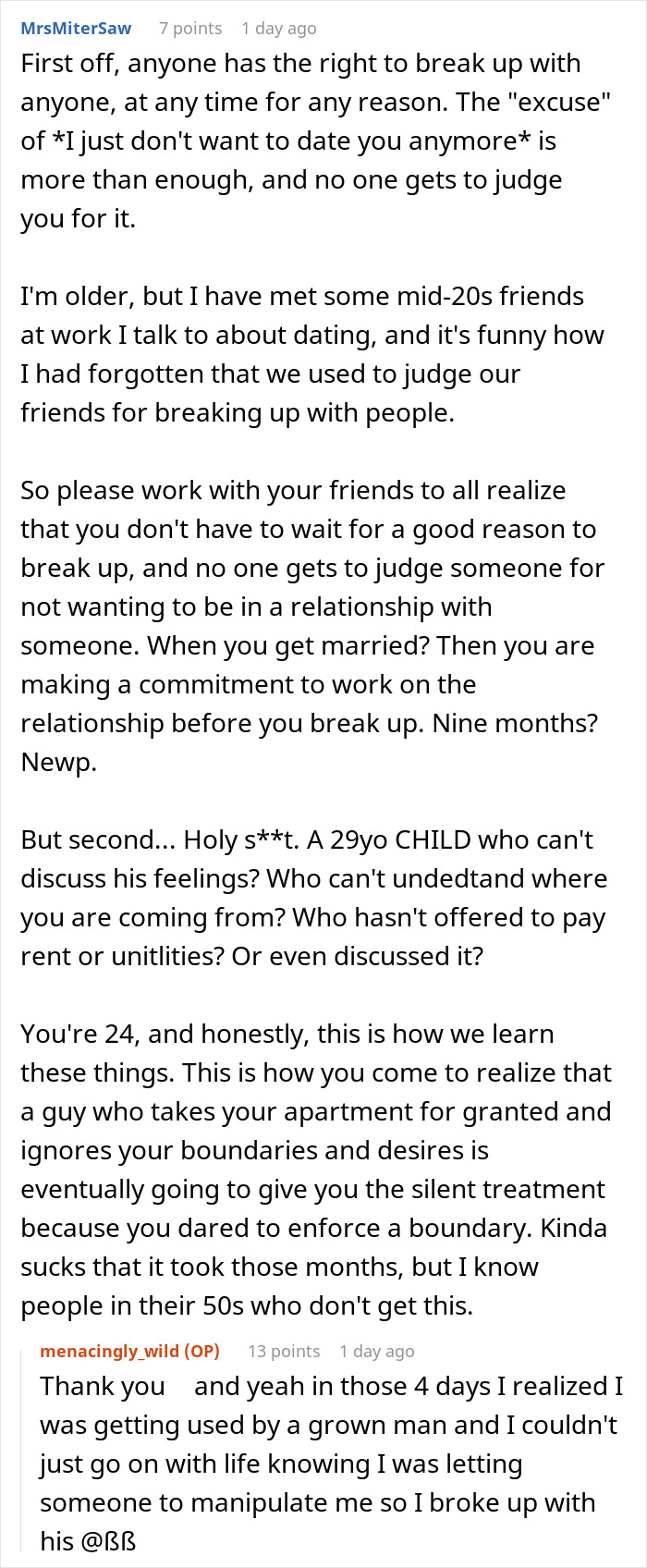





from Bored Panda https://ift.tt/P7Fq8fk
via IFTTT source site : boredpanda